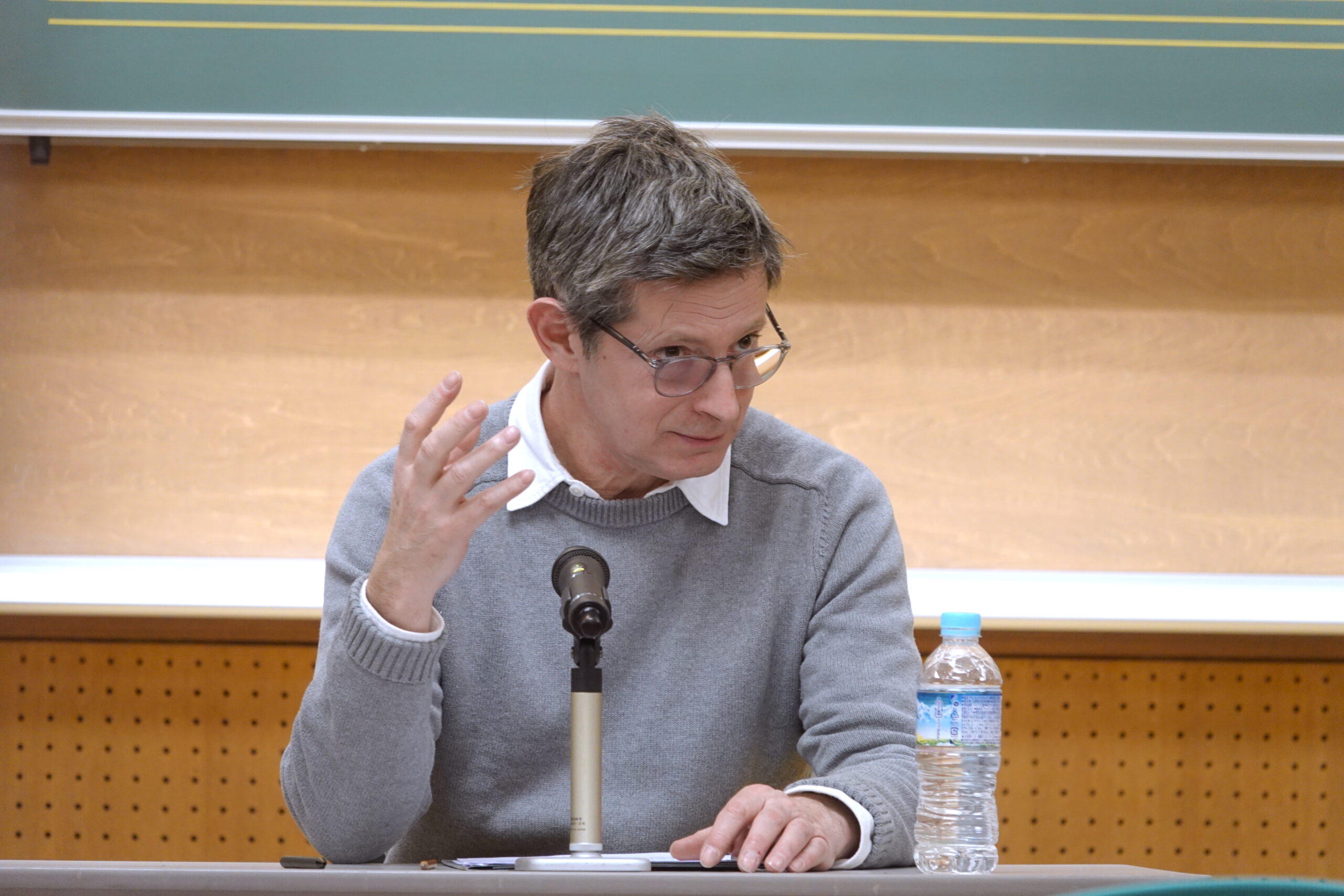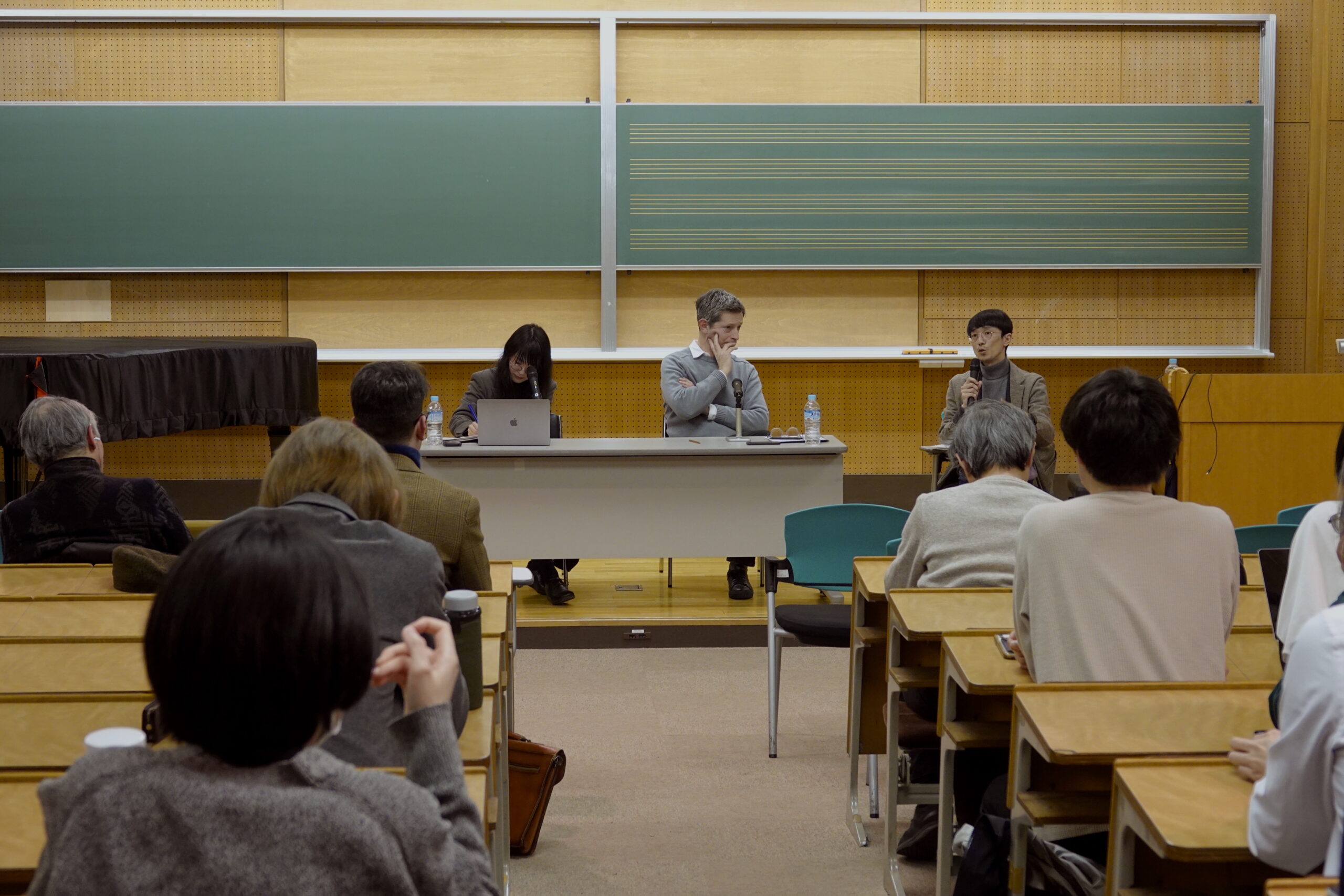On March 4, 2025, from 6:00 pm, David Lapoujade’s lecture, entitled “The Body Without Organs and Perception,” was held at the Auditorium of the Administration Office at the Komaba Campus of the University of Tokyo. David Lapoujade (Paris 1 University), a philosopher who began his career in pragmatism studies, is known as the editor of posthumously published works by Gilles Deleuze. He is also the editor of Deleuze’s lectures, which began being published in 2023. His recent works include The Lesser Existences: Étienne Souriau, an Aesthetics for the Virtual and Worlds Built to Fall Apart: Versions of Philip K. Dick, in which he develops a reflection on the increasingly chaotic world itself.

In this lecture, Professor Lapoujade proposed that the concept of “the body without organs” (Corps sans organes) introduced by Deleuze and Guattari be traced from the perspective of Deleuze’s consistent emphasis on “sensation” (sentir) and “premonition” (pressentir). He demonstrated the process of transitioning to a molecular dimension based on the influx of desires and the creation of new organs that do not rely on existing organs, linking it to the creation of new objects. Furthermore, Professor Lapoujade pointed out the current situation in which the creation of new collective bodies and new organs has not been successful, especially since the global uprisings in the 2010s in response to unbearable circumstances. This led him to raise questions about how we can reconsider Deleuze and Guattari’s concept of the “body without organs” (CsO) in light of the movements’ effectiveness in perceiving the various overwhelming things in the world today.
Dr. Chiaki Hori, a specialist on Deleuze and the Japanese translator of Lapoujade’s works, posed questions as the commentator. After rephrasing the theme of the “generation of the eye” as an important subject for Deleuze, linking it to Marxist theory, he referred to Lapoujade’s discussion of the “uprising collective body” in his work Aberrant Movements: The Philosophy of Gilles Deleuze, raising three questions regarding the possibility of forming a collective that does not yet exist. The first question concerned how new space-time realities are created in uprisings or demonstrations, and how the very nature of space and time is transformed in the process. The second question explored how the relationship between the body without organs (CsO) and language, which was related to Artaud’s language in Deleuze’s solo work The Logic of Sense, should be understood in this context. The third question focused on the relationship between the socio-political context at the time of the publication of Anti-Oedipus and the text itself.
In response to these points, Lapoujade provided a comprehensive perspective on the significant role played by Guattari and the evolution of Deleuze’s thought since the 1960s. He particularly emphasized that, while the body without organs (CsO) has a repulsive aspect that leads to dispersion and fragmentation, there is also an attractive force that gathers and consolidates things. He then discussed the potential for the formation of collectives based on this insight. This was an important perspective that should be revisited when considering the current state of the world in the 2020s.

Reported by Hanako Takayama (EAA Project Lecturer)
Photographed by LI Jia (Doctral Student at the Graduate School of Arts and Sciences)








